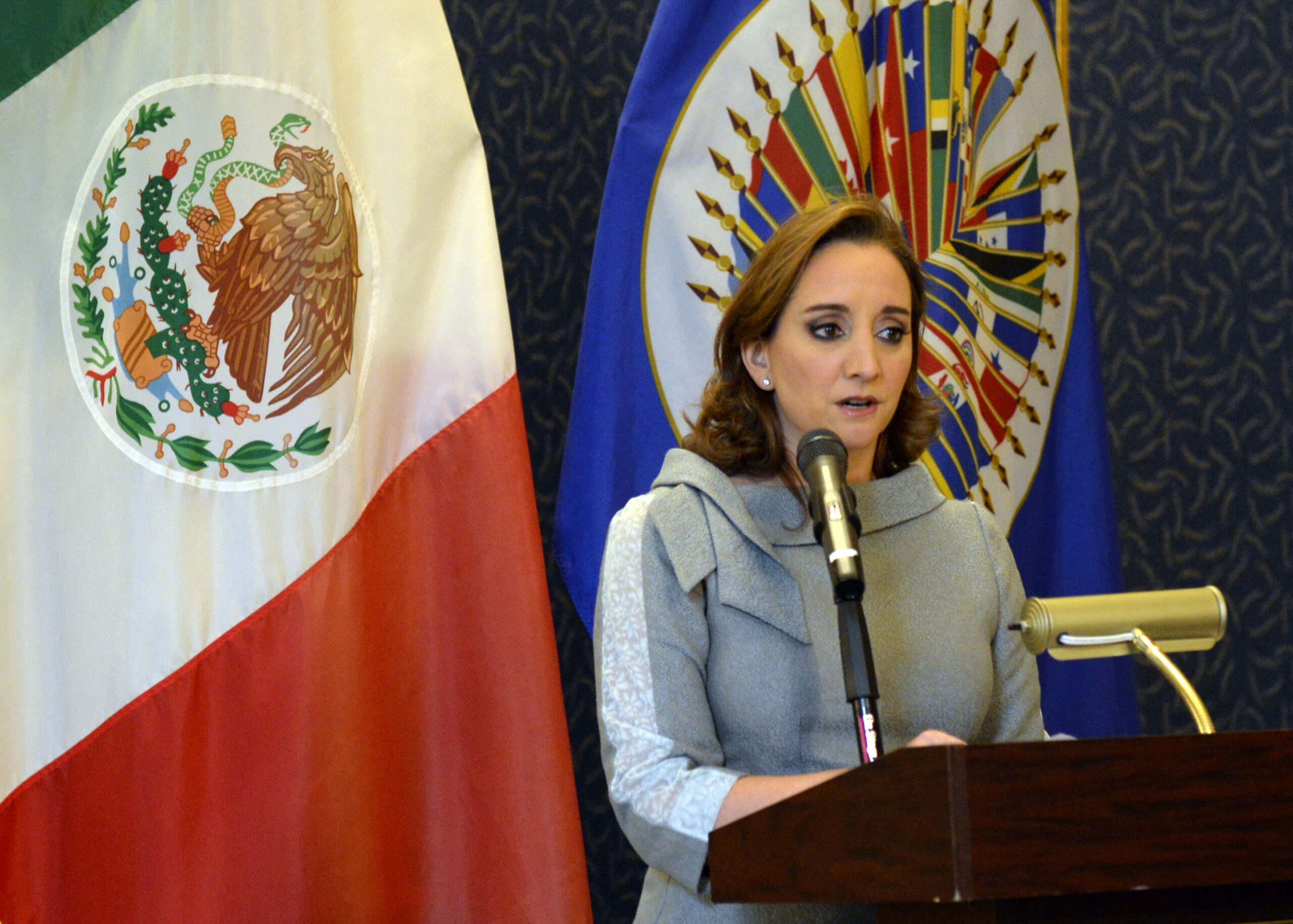Claudia Ruiz Massieu is a Mexican lawyer and politician who previously served as Mexico’s Secretary of Tourism and Secretary of Foreign Affairs. In an interview with the HPR, Massieu discussed her proudest moments and lessons from her experience in international affairs, shared her views on resolving issues in the immigration system, and offered advice to students aspiring to join public service.
Harvard Political Review: As the minister of foreign policy, what is one event that you handled that you are particularly proud of?
Claudia Ruiz Massieu: When I was foreign secretary, ten days into my term, a group of Mexican tourists in Egypt was shot down by military helicopters because they mistook them for terrorists. I was new in the foreign ministry, and everyone was saying, “What should you do?” Public opinion, political pressure kept mounting every day. We started by calling the Egyptian ambassador in Mexico, but I felt that something was missing. The people in Mexico wanted the government to be more involved, so I decided to go to Egypt myself. I took the affected families, forensic experts and tenetologists, and doctors to show that the whole of the government was behind those families.
It was a success, but it was a risk. I think it showed how you have to be able to find a way that your work touches people. By being more flexible in what you do, regardless of what conventional wisdom says, this became one of the highlights of my career. I’m proud of these kinds of moments, but also of being able to do things in a bolder way, willing to take risks, and also willing to take the responsibility if things go wrong.
HPR: Now that we talked about proud moments, is there one thing that you might regret? One thing you could have improved on?
CRM: I know I did plenty of things not that well. I did the best I could under the circumstances. You have to rely on your team and make the calls that you think are best. You have to be willing to take responsibility for it, even if it doesn’t go right. Understand that you have to be able to lead a competent, professional team, and trust them. Be humble when you don’t know something, and be able to ask someone in your team, ‘what should I do?’ and play out their scenarios. Still, understand that it’s also a leader’s responsibility to be the one to say this is a direction we’re moving toward when you have sufficient information to make a decision.
HPR: When it comes to immigration, many of us focus on the American perspective, but not as much on the Mexican perspective on the issue. How would you evaluate the Mexican perspective, the role of the Mexican government in these foreign policy issues with the United States regarding immigration?
CRM: Immigration and migration have always been a source of tension in the United States and Mexico. For Mexico, I think, it’s been hard historically to have a more comprehensive and coherent migration policy. We’re so focused on what our community needs from us when it comes to the relationship with the American administration that is in power.
We’ve failed historically from this comprehensive policy that largely ignores the fact that we are also a country that not only sends migrants to the United States, but has all the facets of the migration phenomenon. We’re a source of migration, but also a country of destination for migrants coming from other countries, particularly from central America. We’re also a transit country of migration. This is very complex because it involves internal domestic policy, but also foreign policy issues. While we are very vocal in saying that we want our migrant communities’ human rights and contributions recognized, we’ve not always done so efficiently and consistently with other migrant populations coming through our country.
I think we need to stop everything and think about what we have to do in order to have a much more comprehensive migration policy. This means strengthening our migration institutions, working effectively with international institutions, and starting to think in a broader, realistic, and forward-looking way about the migration mission. Start thinking in terms of the next 100 years, not just focusing on right now. We should not look at the migration flows or migration dynamics as something to be solved, but as a phenomenon that is natural and has to be managed more effectively in a much more humane way. We need to create a much larger critical mass in the United States that looks at the migration issue as a way to solve many of the problems in the U.S., as it is in Mexico, in terms of labor market and demand economics.
HPR: Many students are interested in politics and international affairs. What advice would you give to students wanting to go into public service?
CRM: Public service is a wonderful space to serve your country, humanity, and the world. It’s tough, but it’s worth it. Being an effective public servant entails being able to see things from a more holistic perspective, and engaging with people who have a career in other disciplines. Be bold enough to take steps and think outside the box, just give everything and every opportunity you get the best you’ve got.



